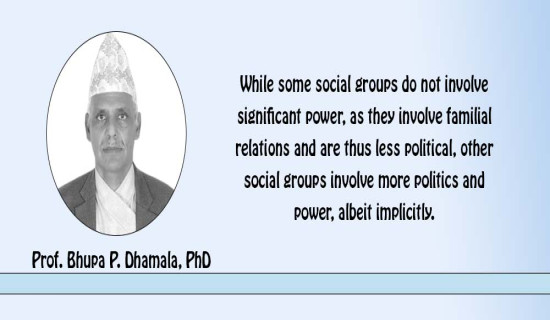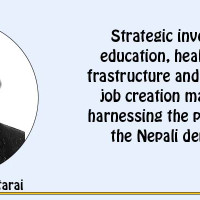- Saturday, 13 September 2025
Refrain From Processed Foods
Most of us look at food being primarily, a source of energy, basically calories but never a wonder of our survival. Few elites look at it as macro-nutrients, carbohydrates, proteins, fats, and fibres, and very few who are erudite look at it as a source of nutrients and antioxidants. And there are also people who find it flavour-rich, something to relish and enjoy. Moreover, it is not uncommon for our predecessors who felt comfortable as a delicacy with naturally grown foods during difficult times. Food bears all of the entitlements and more, and of course beyond. It is important for all of us to know about natural and altered food. Let’s talk about why?
I had always wondered about the varieties of our food. In fact, I may have started a thread on this myself when I first joined the kitchen with my mother. I watched it, it was yellow in colour so I guessed that it has got turmeric in it. When it’s pungent, then garlic and/or ginger and it looks like it has got a potato in it. I just loved the look of it and the smell, forced me to feel hungry every time I saw my mother preparing food. And those medicines in my mother’s recipe were awesome.
Toxic environment
Food is always good for us but it is often painful to say tech has made it bad. Now, talking about the category of bad foods, I cannot resist blaming on processing industries. It is important to understand what makes those delicacies bad in the first place. Undoubtedly, these foods are almost the same foods that we find in the category of good foods. But, unfortunately, they are refined or processed, irradiated, fried, and/or altered. In addition, what makes them bad is the fact that our foods, nowadays, are grown in a toxic environment with lots of pesticides and fertilisers, and not to forget that food animals are farmed in cruel, inhumane conditions and transported to and fed hormones to grow faster and antibiotics as a growth promoter.
Health is in part dictated by diet and our health, and in fact, behaves as we treat it. In recent times, our focus is, indeed, on the presumed negative effects of bad diets and bad foods, rather than on the identification of diets and foods that may confer significant positive health effects with flavour and taste. Let alone sedentary behaviour and bad habits contributing to our poor health be forgotten. It is pitiful to know that about 2.5 billion tons of food is wasted worldwide every year according to Greenly Institute (2023), and fruits and vegetables contributed the highest waste of all types of food. Food wasted is not only food we throw away after cooking meals, or the uneaten food from fine dining tables but also includes lost or discarded food at all stages of the food cycle.
Is it wrong that whenever we go shopping for fruit or vegetables, is there anybody who does not love to see apples that are red, shiny, and perfectly shaped? We invariably think that the apple has a good taste and good nutrition. Our intelligence tells us to buy the perfect apple and avoid apples that are uneven in colour, different in shape, and smaller in size. We have a preoccupied thought of good and bad and tend to assume that fruits and vegetables that look less attractive have less nutritional content as well.
Our market is flooded with foods that are refined like starches, fats, and protein. Fooled with an aesthetic look, we never think of whether it is organic or not. Those highly processed foods in fact cause an undesired effect on our body, such as increased risk of cancer, increased chances for depression, diabetes, cardiovascular disease, and much more. Do not be shocked as most likely that we are consuming these foods. These processed foods contain high calories but in addition, artificial sweeteners, additives, preservatives, flavour enhancers, etc.
Health tax
It is imperative to know that packaged food industries have a primary goal to make profits and the rest is all minor. Now, in order to achieve their intended goal, they would want that their products have a shelf life really extended and people should keep on buying them.
Be it a packaged food item like breakfast cereals such as cornflakes or an energy bar or drink or perhaps frozen or pre-made foods that just need to be defrosted or re-heated. The goal is always, to make them delicious with appeasing look and taste. So, in order to achieve this, and to increase the shelf life of the food, a lot of additives are added, but, on the other hand, food loses much of its natural flavours and benefits to our health. Then, in order to make it addictive, industries use salts/sugars or things that are far worse than sugar such as artificial sweeteners. In fact, artificial sweeteners are more destructive for our gut than we imagine.
Moreover, there are additives such as flavour enhancers used to make it super palatable while emulsifiers, suspending agents, and transparent packaging make products even more appealing, and then, increase the shelf-life of the product to sustain for weeks, months, or maybe years, they add another culprit to our health, preservatives.
Let’s hope that we have a better understanding of what we need to be eating and the things we should be absolutely avoiding and others we should be limiting, like the foods in the bad category, nevertheless natural and organic are always the best. And, lastly, is it not the right time for everyone to call upon the government to impose a health tax on those processed foods?
(Dr. Lohani is the clinical director at the Nepal drug and Poison Information Centre. lohanis@gmail.com)

















